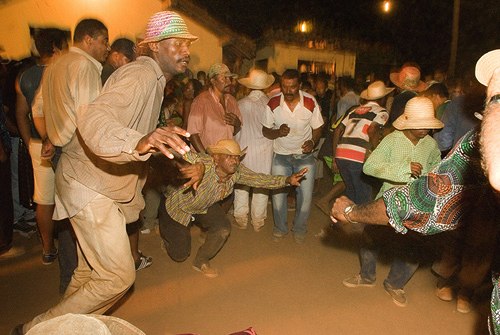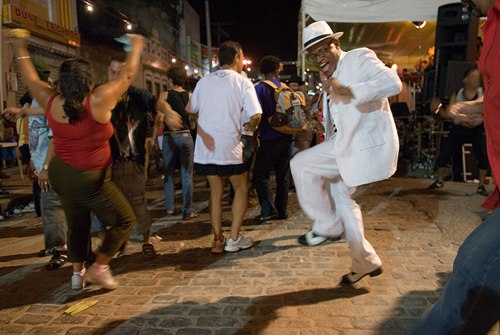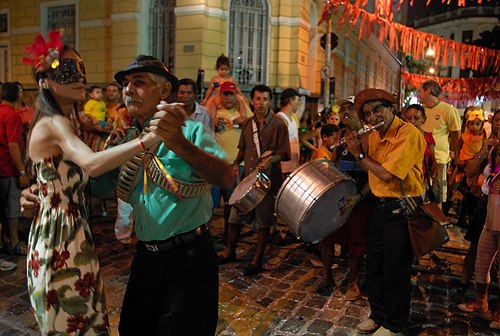|
 |
|
|
 |
 |
Everyone knows Salvador de Bahia and Rio de Janeiro throw lavish and large Carnaval festivals. Outside of Brazil few know about Recife, the capital of the state of Pernambuco and Brazil's fifth largest city. What makes Carnaval so special here? The answer: it's an authentic, intimate event — a treasure of unique music and dance styles, appreciated by both visitors and locals. Carnaval in Recife is a festival of the streets, and dancing shows that. A pifano band plays through the night as people dance on the cobblestone streets. Celebrants in the local barrios throw their own confetti while a couple dances simply to the music thumping from nearby speakers. The street festival nearby the Patio Sao Pedro in Recife is a precursor to the chaos of Carnaval, but that doesn't stop smartly dressed locals from enjoying themselves to the fullest. Then there is the night of sambada, the celebration at the engenho Cumbe (the traditional sugarcane plantation). The music: maracatu baque solto (loose beat, also known as maracatu rural), the impossibly fast combination of the bombo, tarol (shallow two-headed drum), gonguê, ganzá, and cuíca (friction drum) accompanied by trumpet, trombone or sax. Most participants dressed normally, in boots, pants, long work shirts and hats. Their clothing may have been normal, but their dancing was brimming with exotic style.
 Carnaval in Recife, Brazil Photo © & courtesy of Jason Gardner |
|
 Carnaval in Recife, Brazil Photo © & courtesy of Jason Gardner |
|
 Carnaval in Recife, Brazil Photo © & courtesy of Jason Gardner |
|
 Carnaval in Recife, Brazil Photo © & courtesy of Jason Gardner |
|
|
|





